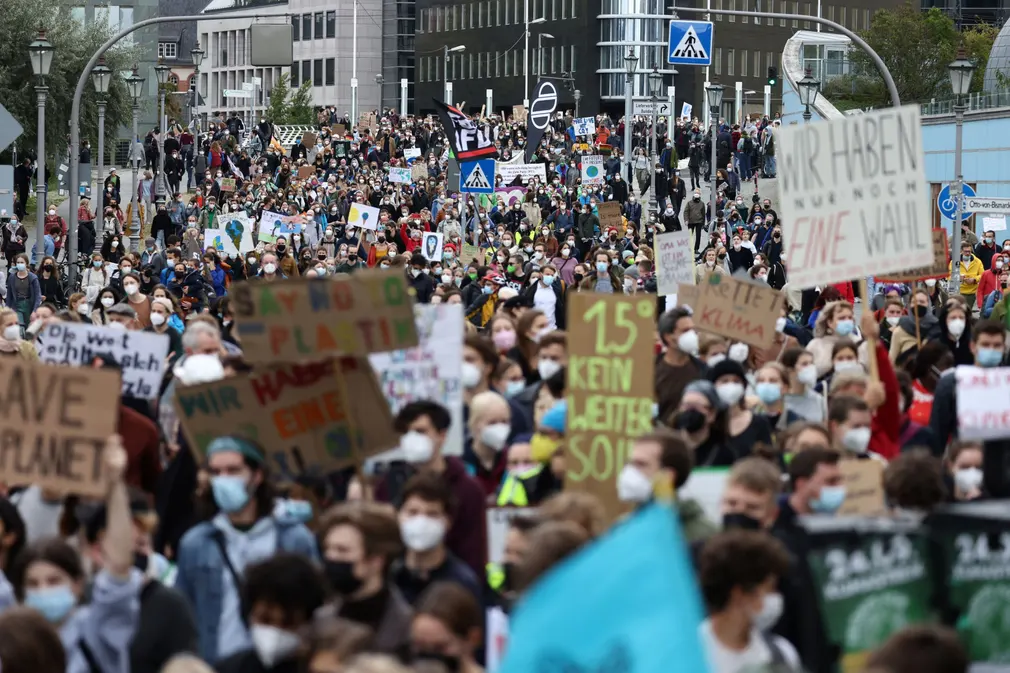We are marching with the Global Climate Strike Berlin. Here’s Why.
On Friday 23 September, Impact Hub Berlin and thousands of other activists will take to the streets for the annual Global Climate Strike. Berlin is one of hundreds of cities participating in the strike, demanding world leaders take action to protect the planet and provide immediate reparations to the communities most affected by the ongoing climate crisis.
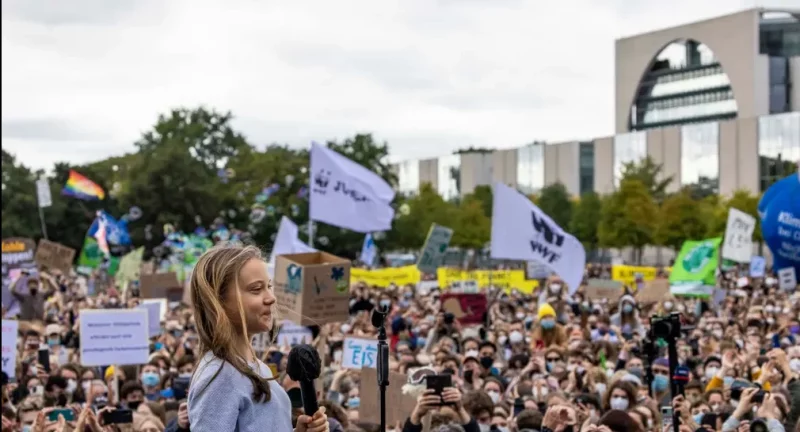
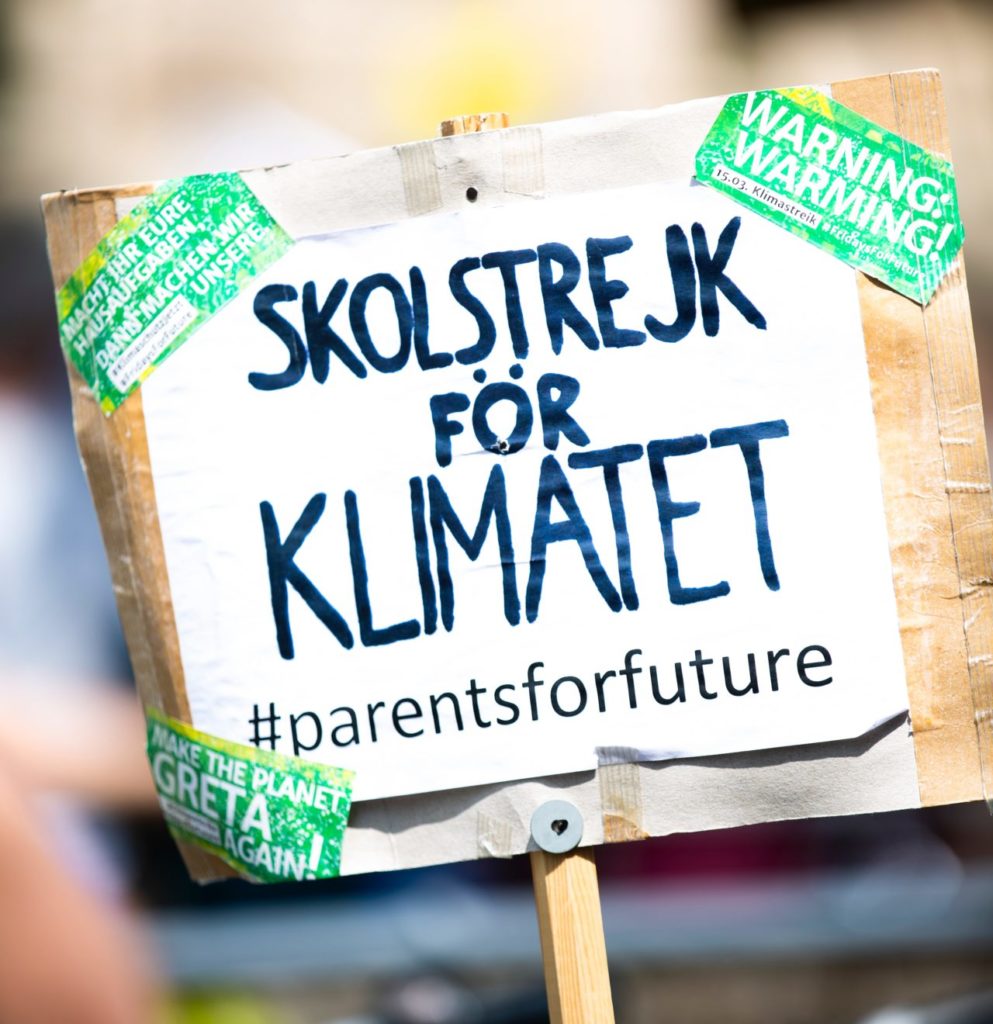
What is the Climate Strike Berlin?
In summer 2018, a then 15-year-old activist Greta Thunberg sat down in front of the Swedish parliament building in Stockholm, three weeks before the upcoming Swedish election, to make a statement. Sitting alone with her now famous "Skolstrejk för klimatet'' sign, Thunberg protested what she saw as in-action on the climate crisis.
“The basic problem is that basically nothing is being done to halt – or even slow – climate and ecological breakdown, despite all the beautiful words and promises,” she told the UK Houses of Parliament in 2019. “This ongoing irresponsible behavior will no doubt be remembered in history as one of the greatest failures of humankind.”
This protest inspired Fridays for Future – a youth-led and organized movement that ignited a flame under the climate movement, galvanising a generation of young people to take action for the future of the planet.
“School won’t matter in the future if we’re too busy running from extreme weather events,” said Alexandria Villaseñor, one of the organizers of the NYC school strikes.
The first major Fridays For Future protest in 2019 saw an estimated 270,000 protesters take part in the Berlin Climate Strike alone, and a further 1.4 million across Germany. Throughout that week, some 4,500 strikes took place in 150 countries with approximately 6 million people taking part. What began as a single act of civil disobedience has now evolved into a movement of millions, covering all demographics.
The initial demands of the protest were simple – to put moral pressure on policymakers so that they listen to the science on climate change, and then to take forceful action to limit global warming. Today it’s grown into a demand for climate reparations, to tackle the rising global temperature and protect the planet’s future.
What are the demands of the Global Climate Strike?
The 2022 Climate Strike will take place in Berlin and around the world on Friday, September 23. In 2019, a clear set of demands was laid out by Fridays for Future, called the Declaration of Lausanne. These were:
- Keep the global temperature rise below 1.5 °C compared to pre-industrial levels.
- Ensure climate justice and equity.
- Listen to the best united science currently available.
This year millions will be marching under the hashtag #PeopleNotProfit. The goal is to highlight the incalculable damage done to the Global South and other Black, Indigenous, People of Colour (BIPOC) and marginalised communities around the world as a result of exploitation by the wealthy, white Global North.
These communities demand reparations so that they can get their lands back and receive the resources for adaptation, loss and damages caused by the climate crisis. What is needed is a redistribution (and in most cases, collectivization) of wealth, technology, information, care work, and political power from the north to the south.
In the years since the first Climate Strike in Berlin, developing nations have experienced the most devastating effects of climate change. Heatwaves, flooding and drought fueled by the exploitation of natural resources has created irreparable damage to MAPA communities (Most Affected People and Areas) in the Global South. Much of this damage has been perpetuated by capitalism in the name of “development” and everlasting “economic growth.”
One 2021 Oxfam climate report stated that without progressive redistribution, climate policies would push an additional 50 million people into poverty. A recent Intergovernmental Panel on Climate Change (IPCC) report also claimed that roughly 3.5 billion people (45% of the world’s population) currently live in areas of “high vulnerability.” This means they will be heavily impacted by floods, droughts or extreme weather in the future.
Even more shocking is that the majority of these communities live in regions with lowest per capita carbon emissions in the world. This inequality can no longer be ignored. As a result, climate justice will be at the heart of this year’s strike. It is time for the world’s richest countries to recognise the damage they have caused to the world’s most vulnerable.
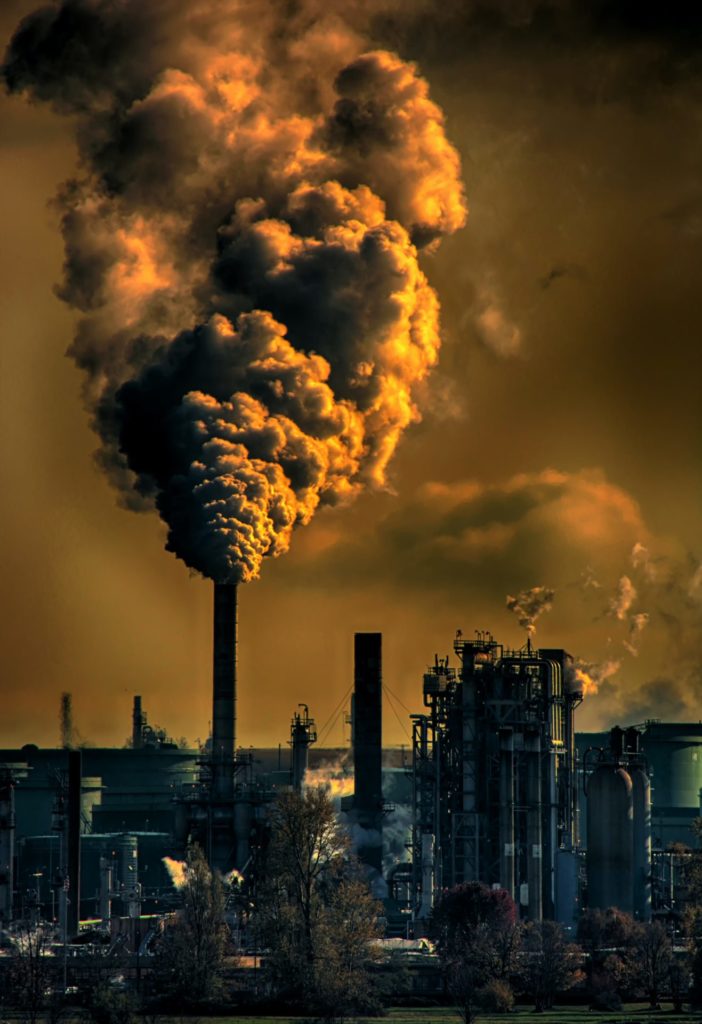
Why must companies take climate action seriously?
Back in February 2022, the IPCC stated that the climate crisis was intensifying and that the world was far behind on the goal to keep temperature increases below 1.5 degrees — the global commitment made during the 2015 Paris Agreement. Another report in April, however, claimed that it was still possible to keep warming below 1.5C if urgent, widespread climate action took place. This means that the biggest contributors to the climate crisis need to take action now – these being some of the world’s largest and most successful companies.
According to the Carbon Majors Database just 100 companies worldwide have been responsible for 71% of the global GHG emissions since 1998. This was a revolutionary finding that has placed huge pressure on the biggest offenders – and rightly so.
The biggest contributor to climate change is by far the extraction of fossil fuels – gas, coal and oil – which accounts for over 75% of global greenhouse gas emissions and nearly 90% of all carbon dioxide emissions. Household names such as Chevron, Exxon, BP and Shell have produced billions of tonnes of CO2, as have state-owned Gazprom and Saudi Aramco.
Having said this, it’s not just the giant energy companies which are contributing to the deterioration of our ecosystems. The construction industry is another huge offender, with material extraction contributing massively to the destruction of land, communities and biodiversity around the world. It is thought that the Amazon rainforest is losing 10,000 acres of land a day to deforestation.
The tech industry also needs to take the climate crisis seriously. Online activities such as streaming and scrolling generate a huge carbon footprint, and it was revealed that mining Bitcoin produces the same amount of energy as the entirety of Sweden.
While on an individual level we can lower our personal carbon footprint, it pales in comparison to the kinds of action big business can achieve to decrease global emissions. This is why it is more vital than ever that all levels of economic activity take the crisis seriously.
Can business and social impact exist together?
Yes. In fact, it is vital that business and impact work together for the betterment of the planet. Making social impact a key issue has proven to benefit so many areas of business, including the bottom line – especially as more people than ever are seeking out sustainable ways to spend their money. How to go about this is another question. Fortunately, some of the world’s biggest companies are starting to make moves.

Businesses that collaborate with social enterprise initiatives will benefit greatly from the move. A good example is the partnership between Brazilian company Green Mining and an accelerator programme developed by AB InBev – the world’s largest beer brewer.
The positive impact created helped AB InBev achieve their circular packaging goals and increase transparency in their supply chain. It also helped demonstrate their compliance with Brazil’s environmental regulations. Green Mining has also been able to expand its corporate client base. Most importantly, the collaboration collected over 2 million kilograms of rubbish for reuse, which kept 330,000 kilograms of CO2 out of the atmosphere.
Big tech is also attempting to make necessary changes. The goal for many tech companies right now is to become carbon neutral or carbon negative. This means that they put as much CO2 back into the ground as they produce through their economic activities.
Last year Meta became one of the first social media companies to claim net zero emissions across its supply chain. Google is also planning to stop making tools and products for oil and gas companies. There is also more funding into renewable energy to generate electricity.
The latest billion dollar business to put its money where its mouth is outdoor clothing brand Patagonia. In 2022, CEO Yvon Chouinard decided to funnell 100% of the company’s stock into a trust that will protect the company’s values.
“Instead of “going public,” you could say we’re “going purpose,” wrote Chouniard. “Instead of extracting value from nature and transforming it into wealth for investors, we’ll use the wealth Patagonia creates to protect the source of all wealth.”
Patagonia’s commitment to fighting the environmental crisis has set a precedent for others to follow. It has also proved that a total reimagining of capitalism is not only a dream, but entirely possible.
Why is Impact Hub Berlin going on strike?
Impact Hub Berlin will be taking to the streets on September 23 to stand by our mission – that entrepreneurship can change the world. Our philosophy is that socially, environmentally, and financially sustainable businesses will help shape a better future for people and the planet.
“We have very little time left to stay under 1.5 degrees,” says Jaqueline Beiram, Marketing Lead at Impact Hub Berlin. “We need to act much faster if we, as humanity, want a chance to thrive – or even survive. We need all society players on board, working with each other: individuals, public organisations, and also private ones.”
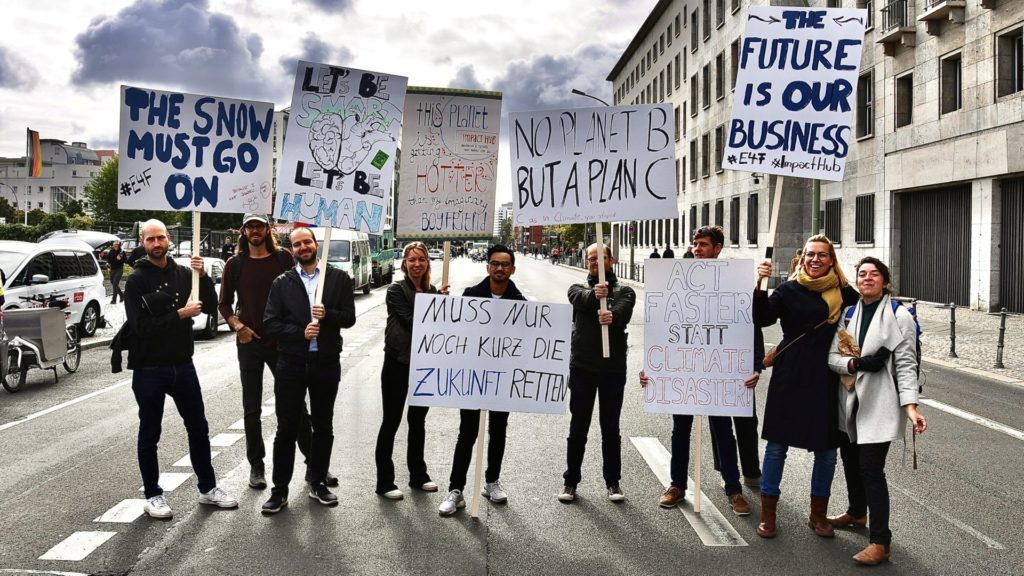
Collaboration is key to our philosophy. In 2019 and the subsequent march in 2021, the Impact Hub Berlin community joined the global movement. This year we want you to join us.
While big tech and billionaires are the most newsworthy, it is at the ground level where much of the major innovation to fight the climate crisis is being made. Impact Hub Berlin members are already on the cutting edge of social impact; putting science on the front line of the circular economy and sustainability.
Two great examples are We Are Galaktika – a company researching zero waste circular solutions for the lifecycle of all silicone products, and Made of Air, whose goal is to produce biomass-derived alternatives to thermoplastics used in building construction. These are just a couple of the hundreds of social impact initiatives being created in Berlin and at Impact Hubs around the world.
Join us at 12pm on September 23, 2022 at Invalidenstr. to march for the future of our planet!
Despite existing initiatives, we are not close enough to achieving the kinds of changes necessary to meet the demands of the Fridays for Future campaign. This is why every year the Global Climate Strike takes place and millions of people take part – and why Impact Hub Berlin will be there as well. Climate Strike Berlin saw tens of thousands of people take to streets to demand action on climate change, and marches will keep happening until those demands begin to be met.

Content Writer
